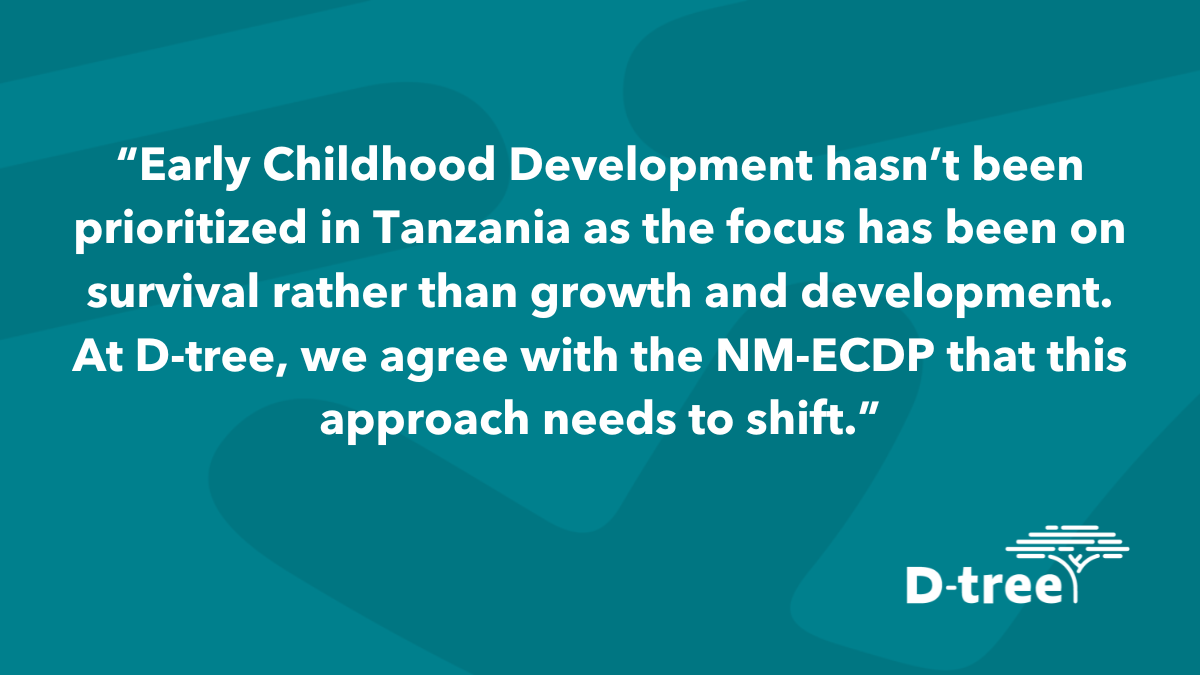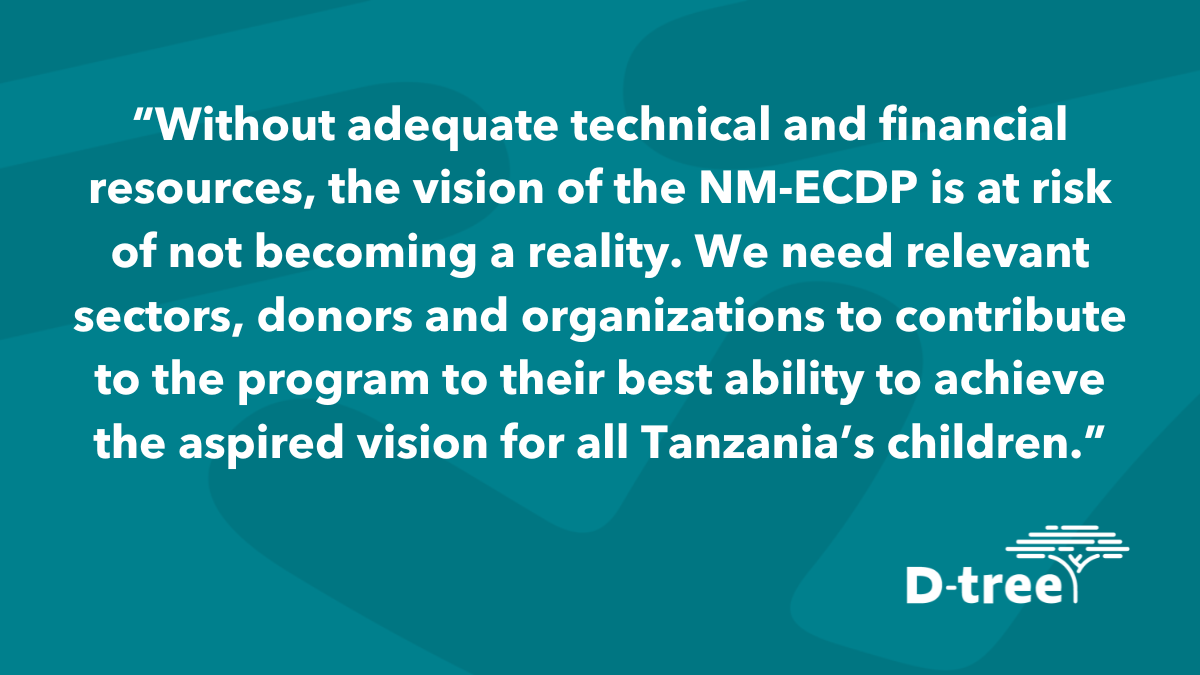Children deserve not only to survive, but to thrive, and caregivers and communities need to be there to support children as they play and learn to develop. Unfortunately, in Tanzania, Early Childhood Development (ECD) hasn’t been prioritized as the focus has been on survival instead of development. The regional launch of the National-Multisectoral ECD Program (NM-ECDP) in Dar es Salaam today provides an opportunity to align all actors in Tanzania to work together to make sure every child in Tanzania can live their lives to the fullest.
For nearly 20 years, D-tree has used the power of digital technology to strengthen health systems, improve health outcomes for all and ensure healthcare is focused on the people it’s meant to serve. Much of our work has been focused on mainland Tanzania and Zanzibar and specifically on improving maternal, child, and adolescent health, but over the past couple of years, under our flagship program Jamii ni Afya, we have worked more actively to also improve Early Childhood Development (ECD) outcomes.
Early childhood – the period below the age of 8 – is the most important developmental phase in a person’s life. In these years, critical foundations for future wellbeing and resilience, mental and physical health, intellectual progress and social interaction are built, but millions of young children worldwide are denied these rights that are essential for their survival, healthy growth and development. Nearly one in three Tanzanians are of early childhood age, providing a tremendous opportunity to set the country and people up for success.

Early Childhood Development hasn’t been prioritized in Tanzania as the focus has been on survival rather than growth and development and we agree with the NM-ECDP that there is need to address the holistic developmental needs for children, given that 43 % of children in Tanzania are at risk of not reaching their full potential. Due to the nature of ECD, we need a multi-sectoral approach; and the NM-EDCP aims to bring a coordinated approach in engaging directly with the local level – with children, caretakers, communities, and Civil Society Organizations, (CSOs) – as well as national level, such as government, and national and international NGOs.
The NM-ECDP provides the opportunity to work together to make sure every child in Tanzania survives and thrives. D-tree looks forward to working with a wide range of partners to translate this into a reality, and in implementing the NM-ECDP we are not starting from scratch. D-tree has seen the impact and potential of digital tools to empower families to play with their children and learn and raise awareness of ECD in communities, in both Jamii ni Afya in Zanzibar, but also through our new ECD programs in mainland Tanzania – Kizazi Kijacho (meaning the Next Generation) and Mtoto ni Jamii (meaning Child is Community).
We will be able to draw on learnings from our work in Zanzibar with Jamii ni Afya and the integration and implementation of an ECD component into the national community health system. For example, we have seen that a lack of awareness, especially among fathers, and a lack of confidence within families to play and learn are key barriers and that there is a big need for technical training at the national as well as local level government entities.
Through Kizazi Kijacho and Mtoto ni Jamii, we have established trusted partnerships with crucial government entities such as the Ministry of Health (MOH), the Ministry of Community Development, Gender, Women, and Special Groups (MoCDGWSGs) and the President’s Office – Regional Administration and Local Government (PO-RALG). The ECD efforts and CHW programming in Tanzania operate in silos. The data and DHIS components are also separate yet the interventions happen in the household. There is a need to integrate Primary Health Care and ECD efforts at programming and data utilization levels to improve services, decision making and save children lives in the nick of time. Our current focus under the Mtoto ni Jamii project is to integrate ECD into the unified community system which has been endorsed by the government as the vehicle for enabling quality CHW services and links to health facilities to improve continuum of care.

But without adequate technical and financial resources, the vision of the NM-ECDP is at risk of not becoming a reality. We need relevant sectors, donors and organizations to contribute to the program to their best ability to achieve the aspired vision for all Tanzania’s children.
At D-tree, we look forward to seeing development partners in Tanzania supporting the vision of the NM-ECDP by ensuring alignment with the program’s activities and working closely with the government to accelerate and drive impact toward a Tanzania where every child survives and thrives.

